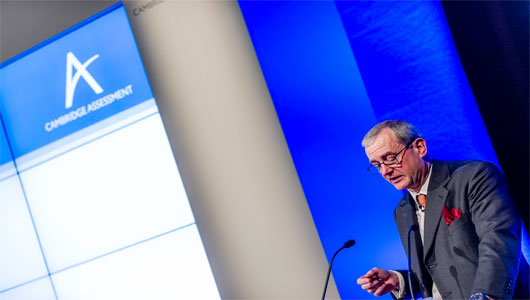
International Education: Our chief executive's view
“A recent piece in The Sunday Times reports on how an increasing number of English schools are looking at international qualifications. It reflects one of the themes at our conference last week on international education – qualification refugees, who take up international qualifications in order to escape the turmoil of domestic qualification and education reform.
That was the message behind, what I found to be, an inspiring talk by Marc Tucker of the U.S. National Center on Education and the Economy, one of the conference’s keynote speakers. It was fascinating to hear Marc’s explanation of how U.S. government policy had failed to prevent a decline in education standards, and fascinating further still when he talked positively about the central role that an international education curriculum - with its emphasis on a rounded educational experience and the development of soft skills alongside deep subject knowledge (and he talked enthusiastically in this context about his experience with Cambridge) can play in promoting educational excellence.
Having contributors from so many different countries and time zones made it a challenging programme..."
I felt the most unique aspect of the day was the contributions via video-links and social media from some of our schools in India, Egypt, South Africa, Argentina and Mexico – a diverse group, but all committed to delivering a high quality education to help students to make a smooth transition to Higher Education. Also imperative for these students is that they acquire the habits they will need to flourish in their careers and contribute positively to the societies they live in now and will eventually live in - transnational mobility being on top of the list.
People didn’t shy away from some of the more difficult issues, such as accessibility. I was particularly taken with Dino Varkey talking about how The Varkey GEMS Foundation has developed lower cost delivery models to open up access to international education. I also picked up on the strong recognition that international education has to be firmly grounded in local conditions if it is to achieve legitimacy and maximise its impact, a point made by Isabel Nisbet, who was able to draw on her experience being based in Singapore for three years, where she worked for Cambridge International Examinations.
Having contributors from so many different countries and time zones made it a challenging programme to put together, but miraculously the technology all worked and despite differences of opinion there was a general sense emerging from the discussion that international education will continue to grow and that it has something positive and distinctive to contribute.”
Simon Lebus
Group Chief Executive, Cambridge Assessment